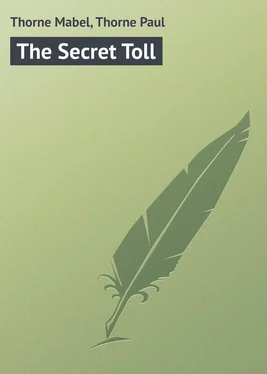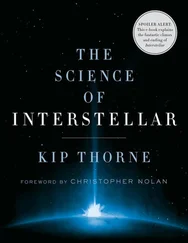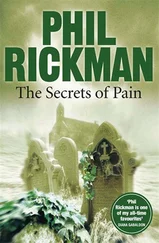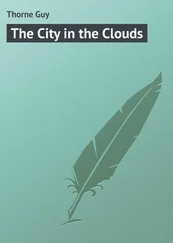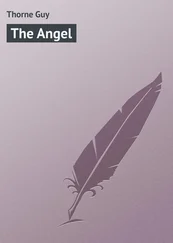Paul Thorne - The Secret Toll
Здесь есть возможность читать онлайн «Paul Thorne - The Secret Toll» — ознакомительный отрывок электронной книги совершенно бесплатно, а после прочтения отрывка купить полную версию. В некоторых случаях можно слушать аудио, скачать через торрент в формате fb2 и присутствует краткое содержание. Жанр: Классический детектив, foreign_detective, foreign_prose, на английском языке. Описание произведения, (предисловие) а так же отзывы посетителей доступны на портале библиотеки ЛибКат.
- Название:The Secret Toll
- Автор:
- Жанр:
- Год:неизвестен
- ISBN:нет данных
- Рейтинг книги:4 / 5. Голосов: 1
-
Избранное:Добавить в избранное
- Отзывы:
-
Ваша оценка:
- 80
- 1
- 2
- 3
- 4
- 5
The Secret Toll: краткое содержание, описание и аннотация
Предлагаем к чтению аннотацию, описание, краткое содержание или предисловие (зависит от того, что написал сам автор книги «The Secret Toll»). Если вы не нашли необходимую информацию о книге — напишите в комментариях, мы постараемся отыскать её.
The Secret Toll — читать онлайн ознакомительный отрывок
Ниже представлен текст книги, разбитый по страницам. Система сохранения места последней прочитанной страницы, позволяет с удобством читать онлайн бесплатно книгу «The Secret Toll», без необходимости каждый раз заново искать на чём Вы остановились. Поставьте закладку, и сможете в любой момент перейти на страницу, на которой закончили чтение.
Интервал:
Закладка:
"Good-bye!" called Forrester, as the car shot off up the drive.
Forrester was glad that his mother and sister were not at home. His mind was concentrated on the peculiar situation in which he now found himself, and he felt little inclination to talk. His mother certainly would have noticed his preoccupation and guessed that something was wrong. It would have been difficult to keep up the pretense of having nothing on his mind. At this time he did not intend to tell his family anything about the warning he had received, for it would worry them unnecessarily, especially after the fate which had overtaken Mr. Nevins.
After dinner Forrester went to the library, hunted up his pipe and sat down to think. He had just settled back in his chair when he heard the door-bell, and a minute later a maid announced that a reporter from the Times wished to see him. Forrester hesitated as he ran the matter over in his mind. He disliked publicity and this call certainly meant publicity. On the other hand, he was seeking all the information and help which he could get, and it was a well-known fact that newspaper reporters frequently solved mysteries which baffled the police. Forrester decided, therefore, that he really had little to lose and perhaps much to gain by allowing the reporter to interview him, so he instructed the maid to send the man in.
The young man entered the library briskly, giving a quick and comprehensive glance around the room before addressing Forrester.
"Mr. Forrester?" he inquired.
"Yes," replied Forrester, affably. "Take this chair and make yourself at home."
As the young man sat down, Forrester turned back the lid of a humidor and pushed it along the library table.
"Gee!" said the young man, selecting a cigar. "You seem glad to see me. I don't always get a greeting like this."
"Well," explained Forrester, smiling, "I'm in deep trouble and you, as a newspaper man, may prove to be a friend in need."
The young man visibly expanded as he remarked, "That's right! We newspaper men can be a lot of help sometimes. If there is anything I can do, say the word. My name's Humphrey."
"I'm very glad to know you," said Forrester. "Now, may I inquire how you happened to call on me?"
"Sure thing," returned Humphrey. "You see, our police reporter informed us that you had been to the detective bureau today – that you had received one of those notices from the 'Friends of the Poor.' Owing to the death of a prominent man like Mr. Nevins, which is attributed to these people, our paper is going to run a special feature article tomorrow morning, reviewing the whole history of this affair. Naturally, we want to know all the details of each case, and what every one connected with it has to say. As you seem to be the latest victim, we are interested in the particulars of your case, and your personal views regarding it."
"I am afraid," declared Forrester, "that the details of one case correspond very closely to those of any other case. I have merely received a warning to put ten thousand dollars in a certain tree by midnight Saturday or take the consequences."
"You're quite right," agreed Humphrey. "The method in each case is the same. But the outcome is not always the same. What do you propose doing in the matter?"
"Well, for one thing," asserted Forrester, " I do not intend to pay !"
"That's the stuff!" approved Humphrey. "If everyone would fight, we'd soon put those fellows out of business. But," he added, leaning confidentially toward Forrester, " how do you propose to fight them?"
"That," said Forrester, "is a question I have not entirely settled as yet. As you know, I went to the detective bureau this afternoon."
"Poof!" grunted Humphrey, leaning back and flicking the ashes from his cigar.
"And I have also engaged a private detective," added Forrester.
"Who?" queried Humphrey.
"A man named Green – Benjamin F. Green."
"There are detectives – and there are detectives," commented Humphrey. "Green falls in the first class."
"I think I get your meaning," smiled Forrester, "and I am inclined to agree with you. That, in fact, is the great problem which confronts me now – how to get a good detective at work on the case. Any suggestions, Mr. Humphrey?"
"I'm a better knocker than I am a suggester," explained Humphrey. "I can tell you the faults of detectives as easily as I could run over my A-B-Cs. I'll admit, though, that there are some good ones. Sooner or later one of them will get on this case and solve it. I wouldn't care to take the responsibility of recommending anyone."
"I know you came here for an interview, Mr. Humphrey," said Forrester, "and I realize how dangerous it is to tell all your plans to a man who is seeking news. But on the other hand, I have a very high opinion of the ability and cleverness of newspaper men. That is why I am going to take you into my confidence."
"I'm enjoying it," assured Humphrey, selecting and lighting another cigar.
"The fact is," announced Forrester, "I am thinking of becoming a detective in this matter myself. The question is, can I do it – have I the ability to be a detective?"
"Why not?" queried Humphrey.
"Well, what, in your opinion, makes a good detective?"
"Brains!" shot back Humphrey. "Look here, Mr. Forrester. As a reporter I can scent the biggest story ever scooped up by a Chicago newspaper. A rich man, in the face of dangerous threats, turning detective and running down a criminal band which has defied the best efforts of the police department. All I ask is that you give me the dope first!"
"Then I may count on you to keep my plans quiet and give me a certain amount of assistance?" questioned Forrester.
"You bet!" exclaimed Humphrey. "To tell you the truth, you've actually got me going. I can see real possibilities to the idea. Now, look here, Mr Forrester; my paper assigned the 'Friends of the Poor' story to me the first time the matter came up. They have kept me at it since because I was familiar with the details. I don't pretend to have any detective instincts, but just my share of common sense, and I have thought the whole matter over pretty carefully. The police, of course, would laugh at any theories from me, but you, perhaps, might like to hear my ideas on the subject."
"Go ahead," urged Forrester.
"In my opinion," Humphrey explained, "the police have fallen down so far on this case because they are sticking too close to the rules. The average city detective becomes familiar with the ways of the average thug-type of criminal. Give him an ordinary murder, burglary, or blackmailing case and he knows just about where to go to get his hands on the people he wants. But when a different class of criminal begins to operate, the average detective cannot see the new conditions. He goes floundering along the same old lines and lets real clues slip through his fingers."
Humphrey paused to relight his cigar.
"Go on," again urged Forrester. "I am learning something."
"Now," continued Humphrey, "the crooks that compose the 'Friends of the Poor' have been operating for about one year. In that time they have received various sums running from ten thousand to twenty-five thousand dollars. I venture to say that in one year's time they have taken in pretty close to two hundred thousand dollars! Now, I ask you, Mr. Forrester; if you were taking in that amount of money, where would you have your hangout? In some West Side saloon or tenement, or in a high class neighborhood – perhaps even in some fine hotel? Do you get my thought, Mr. Forrester?"
"I think I do," said Forrester.
"All right, then," went on Humphrey. "I happen to know what the police are doing in this matter. They are dividing their time between watching an old oak up on the North Shore, and rummaging around West Side dives. Somewhere, in between , our men sit laughing at them!"
Читать дальшеИнтервал:
Закладка:
Похожие книги на «The Secret Toll»
Представляем Вашему вниманию похожие книги на «The Secret Toll» списком для выбора. Мы отобрали схожую по названию и смыслу литературу в надежде предоставить читателям больше вариантов отыскать новые, интересные, ещё непрочитанные произведения.
Обсуждение, отзывы о книге «The Secret Toll» и просто собственные мнения читателей. Оставьте ваши комментарии, напишите, что Вы думаете о произведении, его смысле или главных героях. Укажите что конкретно понравилось, а что нет, и почему Вы так считаете.
